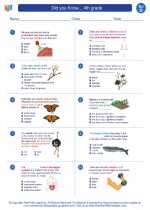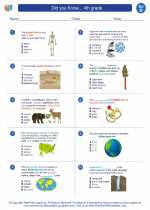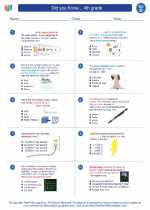Nuclear Fission
Nuclear fission is a process in which the nucleus of an atom is split into two or more smaller nuclei, along with the release of a large amount of energy. This process is the basis for nuclear power plants and nuclear weapons.
Key Concepts
- Nuclear Reaction: Fission is a nuclear reaction in which the nucleus of an atom is split into smaller parts.
- Nuclear Energy: The process of nuclear fission releases a significant amount of energy in the form of heat and radiation.
- Chain Reaction: Fission can lead to a chain reaction in which the splitting of one nucleus leads to the fission of other nearby nuclei, releasing more energy.
- Control Rods: In a nuclear reactor, control rods are used to regulate the rate of fission to maintain a steady and controlled release of energy.
- Nuclear Waste: The by-products of nuclear fission include radioactive waste materials that require careful handling and disposal.
Study Guide
When studying nuclear fission, it's important to focus on the following key areas:
- Understanding the process of nuclear fission and the components involved in a nuclear reaction.
- Exploring the applications of nuclear fission in generating electricity and the potential environmental impact.
- Examining the safety measures and precautions associated with nuclear fission, including the handling and storage of nuclear waste.
- Analyzing the social and ethical considerations surrounding the use of nuclear fission for energy production and its impact on global energy needs.
By mastering these concepts, you will gain a comprehensive understanding of nuclear fission and its implications for energy production and the environment.
.◂Science Worksheets and Study Guides Fourth Grade. Did you Know... 4th grade
Study Guide Did you Know... 4th grade
Did you Know... 4th grade  Worksheet/Answer key
Worksheet/Answer key Did you Know... 4th grade
Did you Know... 4th grade  Worksheet/Answer key
Worksheet/Answer key Did you Know... 4th grade
Did you Know... 4th grade  Worksheet/Answer key
Worksheet/Answer key Did you Know... 4th grade
Did you Know... 4th grade 

 Worksheet/Answer key
Worksheet/Answer key
 Worksheet/Answer key
Worksheet/Answer key
 Worksheet/Answer key
Worksheet/Answer key

The resources above cover the following skills:
Core Ideas for Knowing Science
Life Science
Organisms are organized on a cellular basis and have a finite life span.